The crimes
The Court's founding treaty, called the Rome Statute, grants the ICC jurisdiction over four main crimes.
First, the crime of genocide is characterised by the specific intent to destroy in whole or in part a national, ethnic, racial or religious group by killing its members or by other means: causing serious bodily or mental harm to members of the group; deliberately inflicting on the group conditions of life calculated to bring about its physical destruction in whole or in part; imposing measures intended to prevent births within the group; or forcibly transferring children of the group to another group.

Second, the ICC can prosecute crimes against humanity, which are serious violations committed as part of a large-scale attack against any civilian population. The 15 forms of crimes against humanity listed in the Rome Statute include offences such as murder, rape, imprisonment, enforced disappearances, enslavement – particularly of women and children, sexual slavery, torture, apartheid and deportation.

Third, war crimes which are grave breaches of the Geneva conventions in the context of armed conflict and include, for instance, the use of child soldiers; the killing or torture of persons such as civilians or prisoners of war; intentionally directing attacks against hospitals, historic monuments, or buildings dedicated to religion, education, art, science or charitable purposes.

Finally, the fourth crime falling within the ICC's jurisdiction is the crime of aggression. It is the use of armed force by a State against the sovereignty, integrity or independence of another State. The definition of this crime was adopted through amending the Rome Statute at the first Review Conference of the Statute in Kampala, Uganda, in 2010.
On 15 December 2017, the Assembly of States Parties adopted by consensus a resolution on the activation of the jurisdiction of the Court over the crime of aggression as of 17 July 2018.
See The Rome Statute and Elements of Crimes
Legal process
As an international court, the ICC's legal process may function differently from that in your national jurisdiction. Below are a few highlights giving key information on the legal process.
Example investigation and case from start to finish
After crimes occur
The Office of the Prosecutor must determine whether there is sufficient evidence of crimes of sufficient gravity falling within the ICC’s jurisdiction, whether there are genuine national proceedings, and whether opening an investigation would serve the interests of justice and of the victims.
If the requirements are not met for initiating an investigation, or if the situation or crimes are not under the ICC’s jurisdiction, the ICC’s Prosecution cannot investigate.
After gathering evidence and identifying a suspect, the Prosecution requests ICC judges to issue:
- an arrest warrant: the ICC relies on countries to make arrests and transfer suspects to the ICC; or
- a summons to appear: suspects appear voluntarily (if not, an arrest warrant may be issued).
If the requirements are not met for initiating an investigation, or if the situation or crimes are not under the ICC’s jurisdiction, the ICC’s Prosecution cannot investigate.
The Prosecution may seek again the confirmation of charges, by presenting new evidence.
Initial appearance: Three Pre-Trial judges confirm suspect's identity and ensure suspect understands the charges.
Confirmation of charges hearings: After hearing the Prosecution, the Defence, and the Legal representative of victims, the judges decide (usually within 60 days) if there is enough evidence for the case to go to trial.
If the suspect is not arrested or does not appear, legal submissions can be made, but hearings cannot begin.
Before three Trial judges, the Prosecution must prove beyond reasonable doubt the guilt of the accused.
Judges consider all evidence, then issue a verdict and, when there is a verdict of guilt, issue a sentence. The judges can sentence a person to up to 30 years of imprisonment, and under exceptional circumstances, a life sentence.
Verdicts are subject to appeal by the Defence and by the Prosecutor.
Judges can also order reparations for the victims.
If there is not enough evidence, the case is closed and the accused is released.
Acquittals are subject to appeal by the Defence and by the Prosecutor.
Both the Prosecutor and the Defence have the right to appeal a Trial Chamber's decision on the verdict (decision on guilt or innocence of the accused) and the sentence.
The victims and the convicted person may appeal an order for reparations.
An appeal is decided by five judges of the Appeals Chamber, who are never the same judges as those who gave the original verdict.
The Appeals Chamber decides whether to uphold the appealed decision, amend it, or reverse it. This is thus the final judgment, unless the Appeals Chamber orders a re-trial before the Trial Chamber.
Jurisdiction
The Court may exercise jurisdiction in a situation where genocide, crimes against humanity or war crimes were committed on or after 1 July 2002 and:
- the crimes were committed by a State Party national, or in the territory of a State Party, or in a State that has accepted the jurisdiction of the Court; or
- the crimes were referred to the ICC Prosecutor by the United Nations Security Council (UNSC) pursuant to a resolution adopted under chapter VII of the UN charter.
As of 17 July 2018, a situation in which an act of aggression would appear to have occurred could be referred to the Court by the Security Council, acting under Chapter VII of the United Nations Charter, irrespective as to whether it involves States Parties or non-States Parties.
In the absence of a UNSC referral of an act of aggression, the Prosecutor may initiate an investigation on her own initiative or upon request from a State Party. The Prosecutor shall first ascertain whether the Security Council has made a determination of an act of aggression committed by the State concerned. Where no such determination has been made within six months after the date of notification to the UNSC by the Prosecutor of the situation, the Prosecutor may nonetheless proceed with the investigation, provided that the Pre-Trial Division has authorized the commencement of the investigation. Also, under these circumstances, the Court shall not exercise its jurisdiction regarding a crime of aggression when committed by a national or on the territory of a State Party that has not ratified or accepted these amendments.
Complementarity
The ICC is intended to complement, not to replace, national criminal systems; it prosecutes cases only when States do not are unwilling or unable to do so genuinely.
Cooperation
As a judicial institution, the ICC does not have its own police force or enforcement body; thus, it relies on cooperation with countries worldwide for support, particularly for making arrests, transferring arrested persons to the ICC detention centre in The Hague, freezing suspects’ assets, and enforcing sentences.
While not a United Nations organization, the Court has a cooperation agreement with the United Nations. When a situation is not within the Court’s jurisdiction, the United Nations Security Council can refer the situation to the ICC granting it jurisdiction. This has been done in the situations in Darfur (Sudan) and Libya.
The ICC actively works to build understanding and cooperation in all regions, for example, through seminars and conferences worldwide. The Court cooperates with both States Parties and non-States Parties.
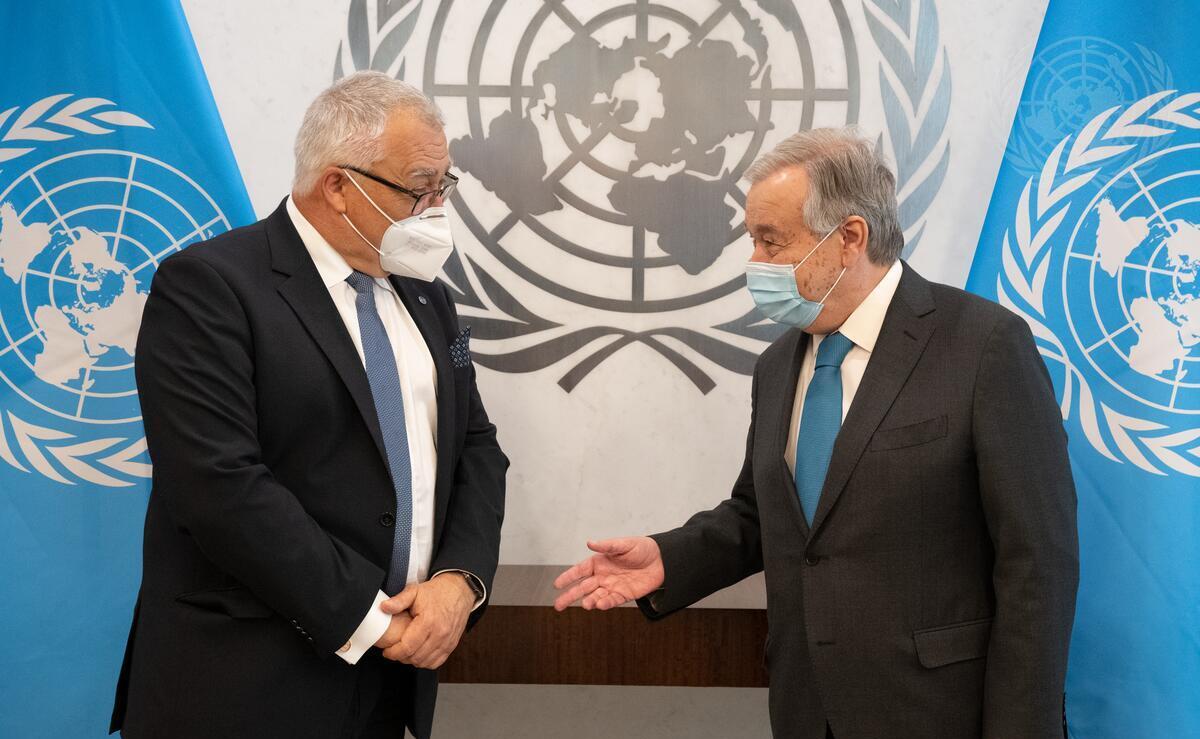
The Court works in particularly close cooperation with its host state, the Netherlands, regarding practical matters such as constructing the Court’s new permanent buildings, transferring suspects to the ICC Detention Centre, facilitating their appearances before the Court, and many other matters.
Countries and other entities, including civil society groups such as NGOs, also cooperate with the Court in numerous ways, such as raising awareness of and building support for the Court and its mandate. The Court seeks to increase this ongoing cooperation through such means as seminars and conferences.
Ten key facts about the legal process
Further to the Key Features listed above, here are some of the basics you may want to know:
- The ICC does not prosecute those under the age of 18 when a crime was committed.
- Before the Prosecutor can investigate, she must conduct a preliminary examination considering such matters as sufficient evidence, jurisdiction, gravity, complementarity, and the interests of justice.
- When investigating, the Prosecutor must collect and disclose both incriminating and exonerating evidence.
- The defendant is considered innocent until proven guilty. The burden of proof lies with the Prosecutor.
- During all stages of proceedings (Pre-Trial, Trial and Appeals), the defendant has the right to information in a language he or she fully understands, thus the ICC proceedings are conducted in multiple languages, with teams of interpreters and translators at work.
- Pre-Trial judges issue warrants of arrest and ensure there is enough evidence before a case can go to trial.
- Before a case is committed to trial (during the Pre-Trial phase), the defendant is referred to as a suspect. Once the case is committed to trial, since at that point the charges have been confirmed, the defendant is referred to as the accused.
- Trial judges hear the evidence from the Prosecutor, Defence, and the Victims’ lawyers, render a verdict, and if a person is found guilty, the sentence and decision on reparations.
- Appeals judges render decisions on appeals from the Prosecutor or Defence.
- If a case is closed without a verdict of guilt, it can be reopened if the Prosecutor presents new evidence.
How we are organized
The Rome Statute established three separate bodies: The Assembly of States Parties, the International Criminal Court, which comprises four separate organs, and the Trust Fund for Victims.
The Rome Statute System

The Assembly of States Parties
Representatives of States Parties meet and provide management oversight for the Court, including electing judges and the Prosecutor and approving the ICC’s budget
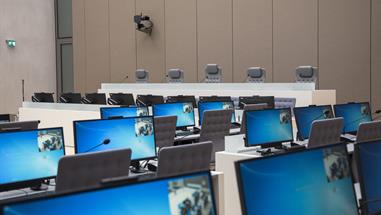
Four organs of the ICC
Presidency
Conducts external relations with States, coordinates judicial matters such as assigning judges, situations and cases to divisions, and oversees the Registry's administrative work
Judicial Divisions
18 judges in 3 divisions – Pre-Trial, Trial and Appeals – conduct judicial proceedings
OTP
Conducts preliminary examinations, investigations, and prosecutions
Registry
Conducts non-judicial activities, such as security, interpretation, outreach, support to Defence and victims' lawyers, and more

Trust Fund for Victims
Provides assistance, support and reparations to victims
States Parties to the Rome Statute
States Parties support the Court, accept the ICC's jurisdiction, and also work to incorporate the rules stipulated in the Rome Statute into their own judicial systems. Thus, each country that becomes a State Party brings the world closer to an ICC universal protection under the Rome Statute system.
States Parties to the Rome Statute gather at least once a year at sessions of the Assembly of States Parties, to provide the management oversight for the Court, for example, by establishing the budget, providing funding and also electing the Court's judges and Prosecutor.

Although the Court's expenses are funded primarily by States Parties, it can also receive voluntary contributions from governments, international organisations, individuals, corporations and other entities.
While States Parties to the Rome Statute have an obligation to cooperate with the Court, countries that are not yet States Parties may also provide ad hoc voluntary cooperation.
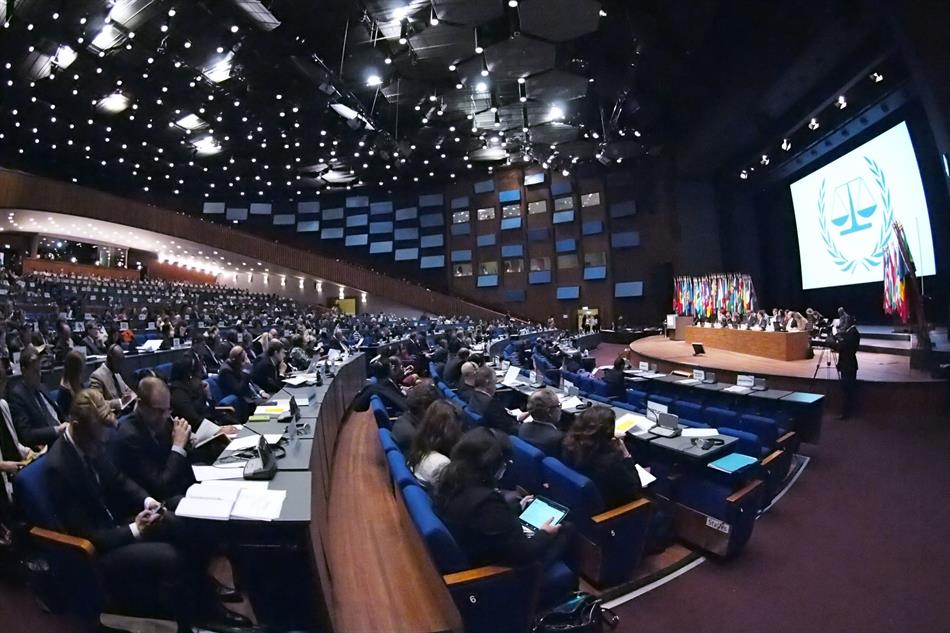
"I reiterate the importance of redoubling our efforts to ensure the continued expansion of the family of States that cooperate to fight against impunity and to protect the victims of genocide, crimes against humanity, war crimes and the crime of aggression".
President of the Assembly of States Parties to the Rome Statute Sidiki Kaba
Learn more about the Assembly of States Parties.
Trust Fund for Victims
Though the Trust Fund for Victims is separate from the Court, it was created in 2004 by the Assembly of States Parties, in accordance with article 79 of the Rome Statute. The Fund's mission is to support and implement programmes that address harms resulting from genocide, crimes of humanity and war crimes. To achieve this mission, the TFV has a two-fold mandate: (i) to implement Court-Ordered reparations and (ii) to provide physical, psychological, and material support to victims and their families. By assisting victims to return to a dignified and contributory life within their communities, the TFV contributes to realizing sustainable and long-lasting peace by promoting restorative justice and reconciliation.
Where we operate
Seat of the Court in The Hague, the Netherlands
The ICC's permanent premises, located at Oude Waalsdorperweg 10 2597 AK, The Hague
The Netherlands.
Close to the North Sea, the new buildings are in an area between nature and city, set in the rolling dune landscape on the edge of The Hague. The compact, sculptural arrangement of six buildings includes a central tower, which houses the ICC Courtrooms. The new location is closer to the ICC detention centre and is in the International Zone of the City of The Hague.
Find out more about the construction project
The new premises are funded by the States Parties to the Rome Statute. The host state (the Netherlands) made the site available free of charge and organised and financed the architectural design competition, which started at the end of 2008. It has also provided loans for some States Parties to participate in finding the project.
In 2010 the Danish firm schmidt hammer lassen was selected to design the new premises, as its design met all the ICC's criteria, including design quality, sustainability, functionality and cost. In October 2012 the tendering procedure for the general contractor was completed and the combination Visser & Smit Bouw and Boele & van Eesteren ("Courtys") was selected to realize the ICC permanent premises.
Country offices
The ICC has offices in several of the countries in which investigations are being conducted.
Those wishing to cooperate with the Court at these local offices, participate in proceedings, assist in Outreach activities, or otherwise engage with the Court in the field are welcome to contact the offices.
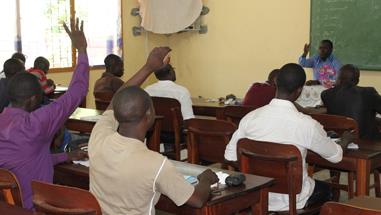
Bangui, Central African Republic
Gervais Bodagay, Field Outreach Assistant
+236 75523818
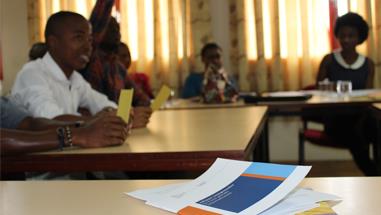
Abidjan, Côte d'Ivoire
Caroline Maurel, Associate Outreach Officer (HQ)
+31 70 5159173

Kinshasa, Democratic Republic of the Congo (DRC)
Margot Tedesco, Field Outreach Coordinator +243 8297 88 013
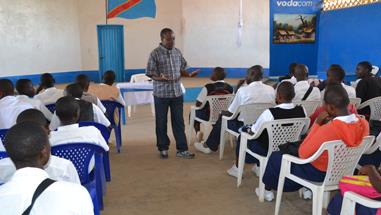
Bunia, Ituri, DRC
Margot Tedesco, Field Outreach Coordinator
+243 8297 88 013
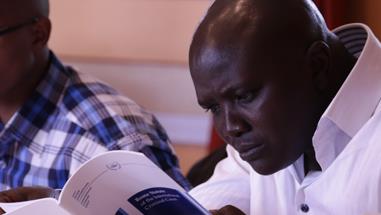
Nairobi, Kenya
Maria Mabinty Kamara, Outreach Coordinator for Kenya and Uganda
+243 99 801 14 18

Kampala, Uganda
Maria Mabinty Kamara, Outreach Coordinator for Kenya and Uganda
+243 99 801 14 18
Liaison office in New York
The ICC has a liaison office to the United Nations in New York, USA, which is primarily responsible for coordinating ICC-related events or activities at the UN headquarters. Diplomats and others involved in these events are welcome to contact this office.
ICC's Liaison Office to the United Nations
Head of the Office, Ms Karen Mosoti
866 United Nations Plaza, Suite 476
New York NY 10017
Tel: 1 212 486 1346/47/62
Fax: 1 212 486 1361
[email protected]
Detention centre
The ICC detention centre is used to hold in safe, secure and humane custody those detained by the ICC. It is not used for enforcing sentences; convicted persons serve sentences in one of the States Parties which have concluded agreements on enforcement of sentences with the ICC and have accepted to place a particular convicted person or persons within a national facility. Until such an arrangement is made, a convicted person remains temporarily in the detention centre.
The Court endeavours to ensure the mental, physical and spiritual welfare of those in the Detention Centre; detainees have access to fresh air, recreational time, sports activities, library books, news, computers (for preparing their cases), quality food and facilities for cooking. Detainees are entitled to privacy with defence lawyers, to privileged communication with a consular or diplomatic representative, to visits a minister or spiritual advisor, and to visits with family, including a spouse or partner.
The International Committee of the Red Cross (ICRC) is the Detention Centre's inspecting authority and as such has unrestricted access and examine, on unannounced visits, the treatment of the detained persons, their living conditions and their physical and psychological conditions, in conformity with widely accepted international standards governing the treatment of persons deprived of liberty.
No visits to the detention centre are granted to the media or general public.
COVID-19 related measures in the Detention centre
Since 19 March 2020, measures have been in place at the Detention Centre in order to protect the health, safety and lives of the detained persons during the ongoing COVID-19 pandemic, by minimizing contacts to detained persons and thus their risk of exposure to the virus to the extent possible.
As a result, all in-person visits to detained persons, including privileged, recreational and spiritual activities have been suspended and alternative measures have been taken to ensure the respect of the detained persons' rights and to limit the impact on them. This includes the establishment of privileged video conferencing in addition to the already existing privileged electronic link for case related material in order to facilitate privileged communications between detained persons at the Detention Centre and their defence teams. At this moment, the Registry is further exploring the possibilities to facilitate video conferencing between detained persons and their families. Furthermore arrangements have been made for all spiritual advisors to provide regular spiritual content by video conference or by written material. Video based instructions are in place and physical materials are provided for language classes. Detained persons continue to benefit from daily fresh air opportunities.
In addition, the Detention Centre adopted an import regime, allowing items to be imported into the Detention Centre following a mandatory quarantine period prior the delivery.
